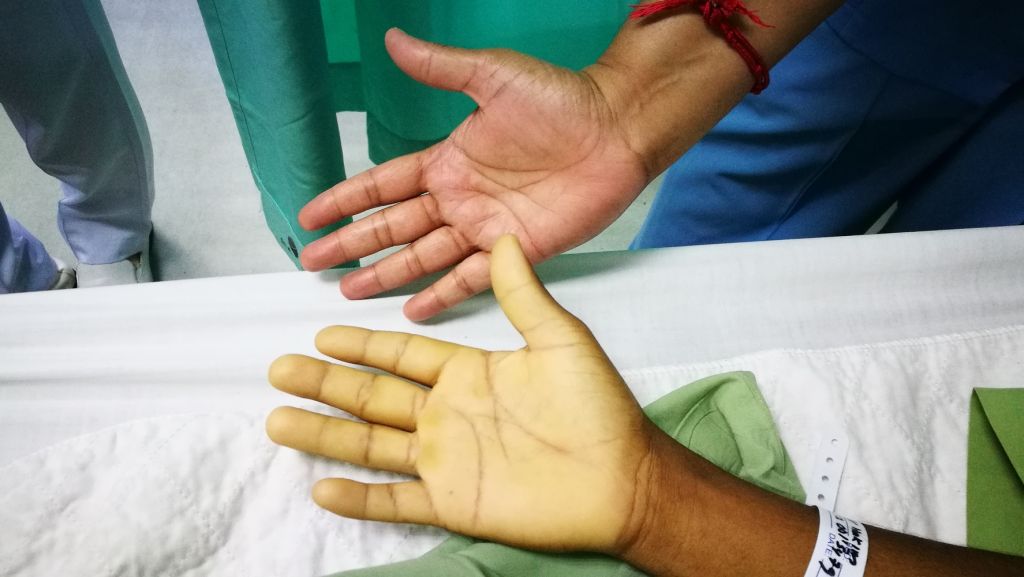China-based Hutchmed has started a phase 2/3 trial of sovleplenib in adults with a disorder called warm antibody autoimmune hemolytic anemia (wAIHA).
The autoimmune disorder can lead to anemia and currently has limited treatment options.
It causes premature destruction of healthy red blood cells and the rate of production of new cells in the bone marrow can’t keep up. This can cause fatigue, weakness, pale skin, palpitations, dizziness and shortness of breath. Jaundice can occur due to the degradation of hemoglobin – the protein responsible for carrying oxygen in the blood.
Clinical trial
These diseases occur when the immune system attacks healthy tissue. The red blood cells are tagged by antibodies and then destroyed by other types of immune cells.
wAIHA is the most common type of autoimmune hemolytic anemia and affects 1 to 3 per 100,000 people every year and can start at any age. The active antibodies cause hemolysis at body temperature which is not always the case in other types of autoimmune hemolytic anemia and is why this condition is labelled warm.
The first patient received the first dose on September 30, this year (2022). This is a randomized, double blind, placebo-controlled clinical trial. The phase 2 stage of the study is to evaluate the safety and preliminary efficacy of sovleplenib in adult patients with wAIHA. If results of the phase 2 stage are positive, the phase 3 stage will be initiated to confirm such efficacy and safety.
Small molecule inhibitor
The primary endpoint for the phase 2 study is the proportion of patients with overall hemoglobin (Hb) response by week 24, whereas the primary endpoint for the phase 3 study would be the proportion of patients who achieve a durable Hb response by week 24.
Approximately 110 patients are expected to be enrolled. The lead principal investigators and doctors involved with the trial are Liansheng Zhang of Lanzhou University Second Hospital, Fengkui Zhang of Chinese Academy of Medical Sciences Blood Diseases Hospital and Bing Han of Chinese Academy of Medical Sciences Peking Union Medical College Hospital.
Sovleplenib is a novel, investigational, selective small molecule inhibitor for oral administration targeting the spleen tyrosine kinase, also known as Syk. Syk is a major component in B-cell receptor and Fc receptor signaling and is an established target for the treatment of multiple subtypes of B-cell lymphomas and autoimmune disorders.





